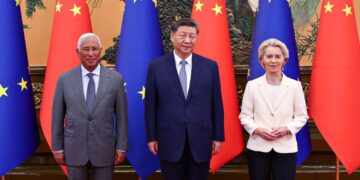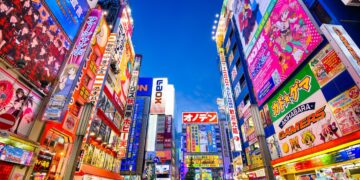Decoding Cameroon’s Conspiracy Narratives: Freemasonry, LGBTQ+ Communities, and Elite Corruption
In Cameroon, a nation where ancestral traditions coexist with contemporary influences, a powerful conspiracy narrative has emerged. This storyline intricately connects Freemasonry, homosexuality, and corrupt political elites into a single framework of suspicion and societal anxiety. These beliefs not only mirror entrenched cultural fears but also expose the complex relationships between authority, identity politics, and social norms in a country undergoing rapid transformation. As accusations of moral decline circulate around prominent figures, this article explores the roots and consequences of these conspiracies—shedding light on how they influence public opinion and political dynamics within Cameroon. By examining this unsettling discourse, we uncover broader societal tensions that continue to shape perceptions of marginalized groups and institutions alike.
The Intersection of Freemasonry and Homosexuality in Cameroonian Conspiracy Theories
Over recent years, there has been an upsurge in theories linking Freemasons with homosexual agendas as culprits behind Cameroon’s socio-political challenges. These narratives often depict Freemasons as clandestine puppeteers manipulating governance while promoting lifestyles seen as antithetical to traditional values. Such views are largely driven by widespread misconceptions about both secret societies like Freemasonry and the LGBTQ+ community—groups frequently misunderstood or stigmatized within Cameroonian society.
To better understand these myths’ persistence requires unpacking public attitudes toward these entities:
- Scapegoating Mechanism: Both groups are frequently blamed for systemic problems ranging from corruption to cultural erosion.
- Lack of Public Knowledge: Limited awareness about the principles guiding Freemasonry fuels suspicion; similarly, pervasive homophobia exacerbates marginalization.
- Political Exploitation: Certain power brokers exploit these fears to galvanize support by portraying themselves as defenders against perceived threats.
| Dimension | Freemasonry | LGBTQ+ Community |
|---|---|---|
| Cultural Perception | Mysterious Elitism | Sins Against Tradition |
| Political Role | A Network Influencing Power Structures | A Marginalized Minority Often Targeted Politically |
| Societal Impact | Pursuit of Philanthropy Amid Secrecy Concerns | Suffering Stigma Leading to Social Exclusion |
The Influence of Corruption on Elite Distrust in Cameroon’s Political Sphere
The widespread corruption permeating Cameroon’s elite circles significantly contributes to growing mistrust among leaders themselves—and between officials and citizens alike. Repeated scandals involving embezzlement or abuse have eroded confidence in governance systems by painting leadership as self-serving rather than service-oriented. This environment breeds fertile ground for conspiracy theories that implicate secretive groups such as Freemasons or marginalized communities like LGBTQ+ individuals as hidden influencers manipulating power for personal gain.
This fracturing among elites manifests through several troubling patterns:
- Bitter Rivalries: Competing factions scramble over scarce resources while undermining each other’s credibility.
- Lack of Transparency: Closed-door dealings fuel rumors regarding loyalties or intentions within government ranks.
- Diminished Legitimacy: Both domestic dissatisfaction and international criticism weaken their standing globally.
This toxic atmosphere hampers effective policy-making while perpetuating cycles where misinformation thrives—diverting attention from urgent reforms needed around accountability.Targeted conspiracy narratives against specific communities only deepen divisions instead of addressing core governance failures.
Tackling Misinformation: Building Unity Through Education & Community Engagement Across West Africa
The proliferation of divisive conspiracy theories linking minority groups with elite corruption calls for proactive strategies centered on education and inclusive dialogue throughout West African societies like Cameroon. Grassroots movements play an essential role by empowering local voices through open forums where concerns can be aired safely without fear or prejudice. Workshops focusing on media literacy equip citizens with critical tools necessary for discerning fact from fiction amid rampant misinformation campaigns.Such initiatives foster resilience against falsehoods spreading via social media platforms widely used across the region today.
Civil society organizations collaborating alongside governmental agencies—and supported by international partners—can amplify efforts aimed at celebrating cultural diversity while promoting mutual respect across different identities within society. Key approaches include:
- Narrative Inclusion: Create stories highlighting positive contributions made by all demographic segments including minorities traditionally sidelined;
- Misinformation Countermeasures:Establish accessible fact-checking services providing reliable verification sources;
- Youth Empowerment:Encourage young people’s participation in journalism & storytelling initiatives reshaping public conversations constructively;
These combined efforts help fortify social cohesion—laying groundwork for transparent governance models rooted in accountability that can withstand divisive pressures over time.
A Reflective Conclusion: Navigating Fear Towards Understanding & Reform in Cameroon
The intricate web connecting allegations about secret societies like Freemasons with homosexuality accusations amid elite corruption scandals reveals much more than mere rumor—it reflects profound societal struggles over identity politics, morality debates,and demands for justice within Cameroon’s evolving landscape.
While some claims may seem exaggerated or baseless at first glance,their persistence signals deep-rooted anxieties surrounding who holds power—and how it is wielded—in modern-day Cameroon.
Addressing these conspiratorial beliefs requires more than dismissal; it calls for empathetic engagement fostering honest conversations aimed at dispelling myths without alienation.
By prioritizing transparency alongside human rights protections,Cameroon can gradually rebuild trust between its peopleand institutions.
Ultimately,the path forward lies not just through exposing falsehoods,but cultivating unity capableof confronting endemic corruptionand championing dignity forall citizens regardlessof backgroundor orientation.
This vision offers hopefor transforming fear-driven narrativesinto catalystsfor positive changeacrossCameroonand beyond.















